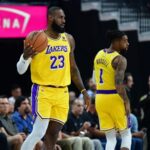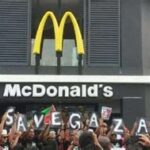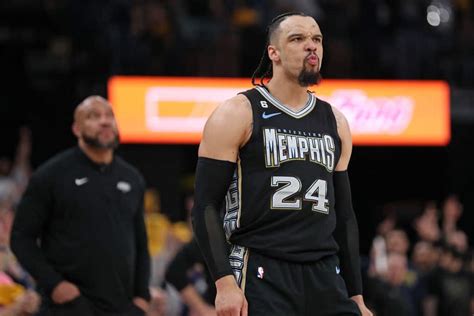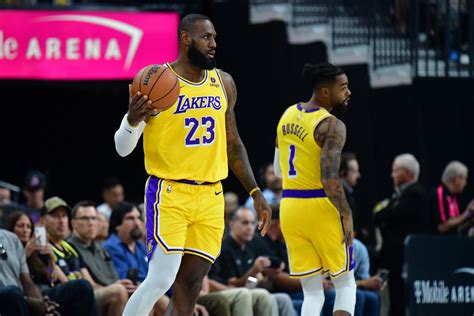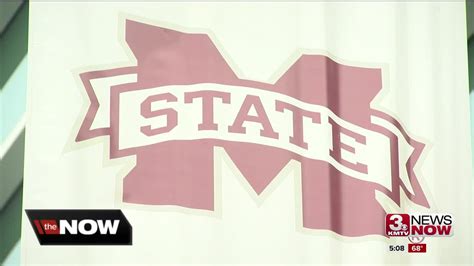
Bill Simmons didn’t hold back, calling the Chicago Bulls’ potential trade with the Los Angeles Lakers a “disaster” on his podcast, criticizing the Bulls’ strategy and potential return for DeMar DeRozan and/or Zach LaVine. Simmons specifically questioned giving up young players and draft capital for what he sees as minimal improvement for the Lakers.
Bill Simmons, the sports media personality and founder of The Ringer, has strongly criticized the Chicago Bulls’ potential trade dealings with the Los Angeles Lakers, labeling the potential move a “disaster” on a recent episode of his eponymous podcast. Simmons’s scathing assessment centered on the Bulls’ willingness to part with valuable assets, including young players and future draft picks, for what he perceives as a minimal return and a short-sighted attempt to retool their roster. The crux of Simmons’s argument lies in his belief that the Bulls are fundamentally misjudging their position in the Eastern Conference and are poised to make a move that will mortgage their future without significantly improving their present.
Simmons’s critique focuses primarily on the potential cost-benefit analysis for the Bulls. He questions the wisdom of trading away young, developing talent and future draft picks—assets that could be used to build a sustainable contender—for players who may not be long-term fits or who may not elevate the Bulls into true championship contention. He pointedly questioned what the Bulls could realistically expect to receive in return for either DeMar DeRozan or Zach LaVine, two of their most valuable trade chips.
“I don’t know what the Bulls are doing,” Simmons stated emphatically on his podcast. “They’re talking about trading DeRozan and LaVine, and for what? What are they going to get back that actually makes them better in the long run? It’s going to be another band-aid. They just keep doing these band-aids, and it’s never going to work.”
Simmons’s analysis also extends to the Lakers’ perspective. While he acknowledges the Lakers’ need to improve their roster around LeBron James and Anthony Davis, he suggests that the Bulls’ available players may not be the optimal solution. He implied that the Lakers might be better served pursuing other trade targets who better fit their team’s needs and timeline.
The backdrop to Simmons’s critique is the Bulls’ current state of mediocrity. After making a splash two seasons ago with the acquisition of DeRozan, the Bulls have failed to live up to expectations. Injuries, inconsistent play, and a lack of cohesion have plagued the team, leaving them mired in the middle of the Eastern Conference standings. The Bulls face a pivotal offseason decision: whether to commit to their current core and attempt to build around them, or to tear down the roster and embark on a full-scale rebuild.
Simmons firmly advocates for the latter approach. He believes that the Bulls’ best path forward is to accumulate young talent and draft picks, even if it means enduring a period of rebuilding. He argues that continuing to chase short-term fixes will only prolong the team’s mediocrity and prevent them from ever truly competing for a championship.
“They need to blow it up,” Simmons asserted. “They need to get young players, they need to get draft picks. They’re not going anywhere with this group. It’s just not working.”
The potential trade between the Bulls and Lakers has been a topic of much speculation and debate among NBA analysts and fans. The Lakers, eager to maximize their championship window while LeBron James is still playing at a high level, are reportedly exploring various trade options to upgrade their roster. The Bulls, on the other hand, are evaluating their options and considering whether to make significant changes to their team.
One of the key questions surrounding any potential trade is the value of DeRozan and LaVine. Both players are talented scorers, but they also have limitations. DeRozan is a 34-year-old veteran who is not known for his three-point shooting or defensive prowess. LaVine is a more versatile scorer, but he has struggled with injuries throughout his career and has not always been a consistent performer.
Simmons’s “disaster” label reflects his concern that the Bulls would be selling low on these assets, accepting a package of players and picks that ultimately does not represent fair value. He emphasized the importance of patience and strategic thinking in rebuilding a franchise, warning against making impulsive moves that could further jeopardize the team’s future.
The Bulls’ front office, led by executive vice president Artūras Karnišovas, faces a difficult decision. They must weigh the potential benefits of a trade with the Lakers against the risks of undermining their long-term prospects. They must also consider the impact of any decision on the team’s fanbase, which has grown increasingly frustrated with the team’s lack of success.
Simmons’s criticism adds to the growing pressure on the Bulls to make the right choice. His voice carries significant weight in the NBA community, and his strong condemnation of the potential trade with the Lakers is likely to influence the perception of the Bulls’ decision-making.
Ultimately, the Bulls’ decision will depend on a variety of factors, including the specific players and picks that the Lakers are willing to offer, the Bulls’ assessment of their own roster, and their overall vision for the future of the franchise. But one thing is clear: the stakes are high, and the Bulls cannot afford to make a mistake.
The article from Yahoo Sports references Simmons’s comments and provides context for the potential trade. It highlights the key issues that Simmons raised, including the value of DeRozan and LaVine, the potential return for the Bulls, and the overall direction of the franchise. The article also notes the Lakers’ perspective and their desire to improve their roster around LeBron James and Anthony Davis.
Simmons’s harsh assessment of the potential trade underscores the challenges facing the Bulls as they navigate a critical juncture in their history. His warning against making a “disaster” trade serves as a reminder of the importance of strategic thinking, patience, and a long-term vision in building a successful NBA franchise. The Bulls management now faces a defining moment which could set the tone for the team’s direction for years to come. Whether they heed Simmon’s warning remains to be seen.
The pressure to make the right decision extends beyond basketball considerations, impacting the organization’s financial health and fan engagement. A poorly executed trade could further alienate the fanbase, leading to decreased ticket sales and merchandise revenue. A successful rebuild, on the other hand, could revitalize the franchise and generate renewed excitement among fans.
The looming uncertainty also affects the players themselves. DeRozan and LaVine are both aware of the trade rumors and the possibility of being moved to a new team. This can create a sense of unease and uncertainty, potentially impacting their performance on the court. The Bulls’ management must be mindful of the human element involved in these decisions and strive to communicate openly and honestly with their players.
The evaluation process requires the Bulls front office to conduct extensive scouting and analysis of potential trade targets. This includes assessing their skill sets, potential fit with the team, and long-term value. They must also carefully consider the financial implications of any trade, including salary cap considerations and the potential impact on the team’s payroll.
The potential trade also has implications for other teams in the NBA. If the Lakers acquire DeRozan or LaVine, it could significantly alter the balance of power in the Western Conference. Other teams may need to adjust their strategies and make their own moves to compete with a strengthened Lakers team.
The situation exemplifies the complex and interconnected nature of the NBA. Every decision a team makes has ripple effects throughout the league. The Bulls’ decision regarding DeRozan and LaVine will not only impact their own future but also the future of the Lakers and potentially other teams as well.
In addition to the potential trade with the Lakers, the Bulls are also reportedly considering other options. They may explore trades with other teams or consider making smaller moves to improve their roster. The key is to find a path forward that aligns with their long-term goals and maximizes their chances of building a sustainable contender.
The Bulls’ situation is a reminder of the challenges facing many NBA teams. In a league dominated by a few elite teams, it can be difficult for others to break through and compete for a championship. Teams must be creative, strategic, and patient in order to build a roster that can compete at the highest level.
Simmons’s criticism, while harsh, reflects a sentiment shared by many observers of the Bulls. The team’s recent struggles have raised serious questions about their direction and their ability to compete in the Eastern Conference. The Bulls must address these questions head-on and make the difficult decisions necessary to chart a new course for the future.
The debate surrounding the potential trade highlights the different philosophies that exist in NBA team building. Some teams prioritize short-term success, even if it means sacrificing long-term assets. Other teams focus on building through the draft and developing young players, even if it means enduring a period of rebuilding. The Bulls must decide which approach is best for them and commit to it wholeheartedly.
The pressure on the Bulls is further amplified by the presence of the Chicago market. The Bulls are one of the most iconic franchises in NBA history, and they play in a city with a passionate and demanding fanbase. The fans expect the team to compete for championships, and they are not satisfied with mediocrity. The Bulls’ management must be mindful of these expectations as they make their decisions.
The outcome of this situation will have a lasting impact on the Bulls organization. A successful rebuild could restore the team to its former glory and generate renewed excitement among fans. A failed rebuild could further prolong the team’s struggles and alienate the fanbase. The stakes are high, and the Bulls must make the right choice.
The situation underscores the importance of strong leadership in NBA front offices. The Bulls need experienced and knowledgeable executives who can make sound decisions based on careful analysis and strategic thinking. They also need leaders who can communicate effectively with players, coaches, and fans.
The Bulls’ current predicament serves as a cautionary tale for other NBA teams. It highlights the dangers of making short-sighted decisions and failing to plan for the future. Teams must constantly evaluate their rosters, assess their strengths and weaknesses, and make adjustments as needed.
The debate surrounding the potential trade also reflects the changing landscape of the NBA. The league has become increasingly reliant on three-point shooting and versatile players. Teams that lack these qualities are at a significant disadvantage. The Bulls must adapt to these changes and build a roster that is capable of competing in the modern NBA.
The analysis of the Bulls’ situation requires a deep understanding of NBA economics and player contracts. The salary cap, luxury tax, and other financial regulations play a significant role in team building. The Bulls must be mindful of these regulations as they make their decisions.
The potential trade also has implications for the individual careers of DeRozan and LaVine. A trade to the Lakers could provide them with an opportunity to compete for a championship. However, it could also mean playing a different role and adjusting to a new team and system.
The Bulls’ situation is a microcosm of the challenges facing many mid-market NBA teams. These teams often struggle to attract and retain top free agents, making it difficult to compete with the league’s elite teams. They must rely on shrewd drafting, player development, and creative trades to build a competitive roster.
The outcome of the Bulls’ situation will be closely watched by other NBA teams, particularly those in similar circumstances. Their success or failure could provide valuable lessons and insights for other teams facing similar challenges.
The analysis of the Bulls’ situation requires a nuanced understanding of basketball strategy and tactics. The team’s offensive and defensive systems, player rotations, and game-planning all play a role in their success or failure. The Bulls must make adjustments to their approach in order to maximize their potential.
The debate surrounding the potential trade highlights the subjective nature of evaluating NBA players. Different analysts and scouts may have different opinions about the value and potential of individual players. The Bulls must rely on their own internal evaluations and trust their judgment when making decisions.
The Bulls’ situation is a reminder of the importance of team chemistry and cohesion. Even a team with talented players can struggle if they do not play well together. The Bulls must prioritize building a team that is united, motivated, and committed to working together.
The potential trade also has implications for the Bulls’ coaching staff. A new coach may have different ideas about how to utilize DeRozan and LaVine, or may prefer to build around different players. The Bulls must consider the impact of any trade on their coaching staff and ensure that they are aligned with the team’s overall goals.
The analysis of the Bulls’ situation requires a long-term perspective. Building a successful NBA team takes time, patience, and a well-defined plan. The Bulls must avoid making impulsive decisions that could jeopardize their long-term prospects.
The debate surrounding the potential trade highlights the role of media and public opinion in shaping NBA narratives. Simmons’s criticism has amplified the pressure on the Bulls to make the right decision. The team must be able to withstand this pressure and make decisions that are in the best interests of the organization, regardless of public opinion.
The Bulls’ situation is a reminder of the cyclical nature of the NBA. Teams rise and fall, and periods of success are often followed by periods of rebuilding. The Bulls must be prepared to navigate these cycles and adapt their strategy as needed.
The potential trade also has implications for the Bulls’ brand and reputation. A successful rebuild could enhance the team’s image and attract new fans. A failed rebuild could damage the team’s reputation and make it more difficult to attract free agents in the future.
The analysis of the Bulls’ situation requires a holistic understanding of the NBA ecosystem. The league is a complex and dynamic environment, and teams must be able to adapt to changing trends and challenges. The Bulls must be proactive, innovative, and strategic in order to compete in this environment.
Frequently Asked Questions (FAQ)
-
What specific concerns did Bill Simmons raise about the potential Bulls-Lakers trade?
Simmons expressed concerns that the Bulls would be giving up valuable young players and draft picks for a minimal return, ultimately hindering their long-term rebuilding efforts. He questioned the value the Bulls would receive for trading DeMar DeRozan and/or Zach LaVine, suggesting it wouldn’t significantly improve the team in the long run and would just be a “band-aid” solution.
-
Why does Simmons believe the Bulls should “blow it up” and start a rebuild?
Simmons believes the current Bulls roster is not competitive enough to contend for a championship. He argues that the Bulls are stuck in mediocrity and need to accumulate young talent and draft picks to build a sustainable contender for the future, rather than chasing short-term fixes.
-
What are the potential risks for the Bulls if they make a bad trade with the Lakers, according to Simmons?
According to Simmons, a bad trade would mortgage the Bulls’ future by depleting their young talent and draft capital without significantly improving their present chances of winning. This could prolong their mediocrity and prevent them from competing for a championship in the long run. It could also damage fan engagement.
-
What is the Lakers’ perspective in potentially pursuing a trade for DeRozan or LaVine?
The Lakers are reportedly looking to improve their roster around LeBron James and Anthony Davis to maximize their championship window. While Simmons doesn’t explicitly state the Lakers’ motives, the article implies they are seeking immediate upgrades to contend in the Western Conference.
-
Besides the Lakers, what other options might the Bulls be considering regarding DeRozan and LaVine?
The article mentions that the Bulls are reportedly considering other trade options with different teams, or possibly making smaller moves to improve their roster. The goal is to find a path forward that aligns with their long-term goals and maximizes their chances of building a sustainable contender, even if it doesn’t involve the Lakers.


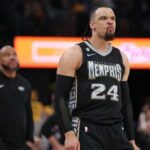
![[Restaurant Name] Returns! Iconic Chain Revives After 30-Year Absence](https://generasitekno.com/wp-content/uploads/2025/06/unnamed-file-924-150x150.jpg)
